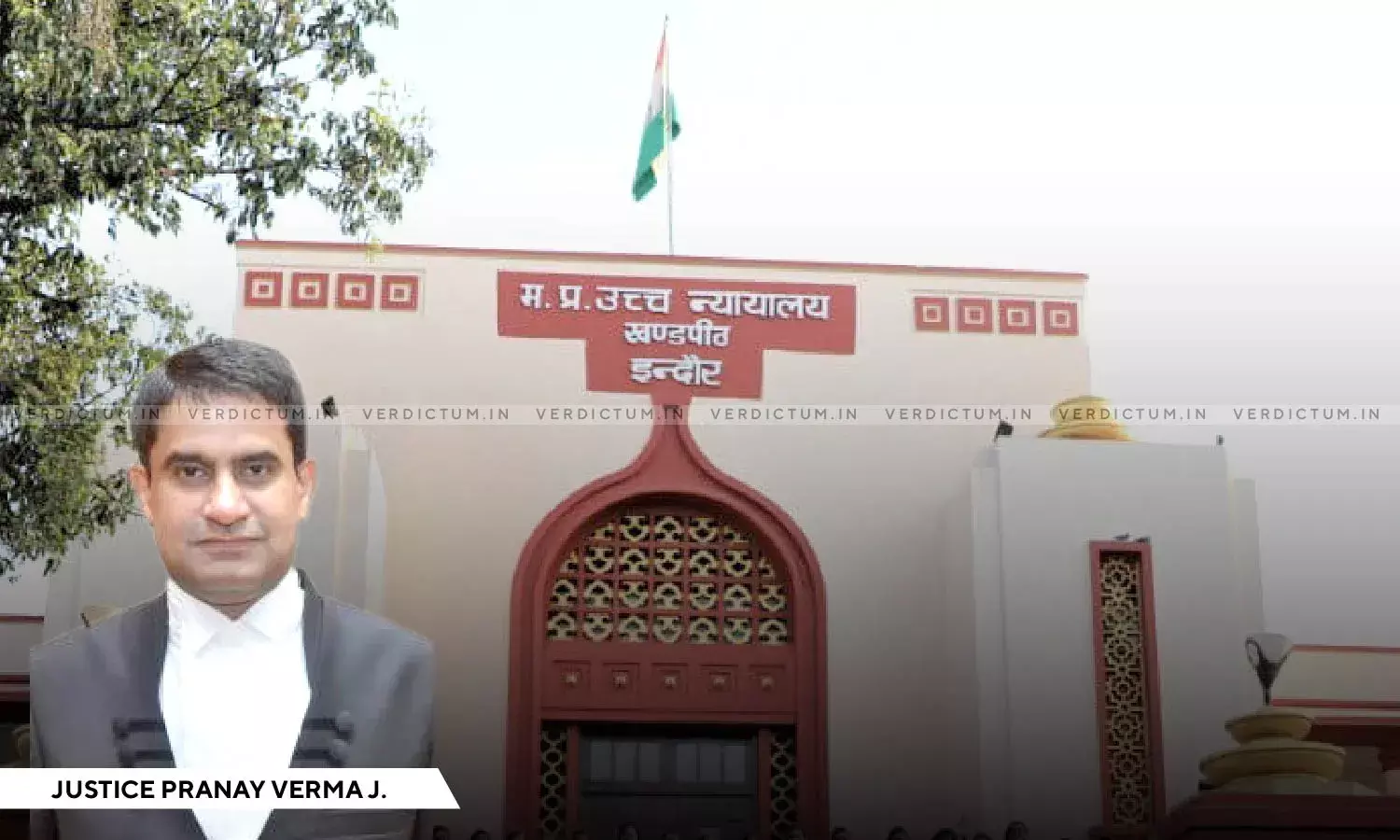Best To Leave For Trial Court To Decide Modification Of Charges Framed: Madhya Pradesh High Court Affirms Discretion

The Madhya Pradesh High Court held that the charges framed against the petitioner under Sections 34(2) of M.P. Excise Act, 1915, and Sections 304, 308 of the Indian Penal Code would be best left for determination by the trial court. The Court emphasized that neither party, particularly the petitioner, would be prejudiced by framing charges under different sections, as the trial court had the authority to modify the charges based on the evidence brought before it during the trial. The petitioner/accused challenged the charges framed against him where the incident in question involved a car accident resulting in the death of two individuals.
A Bench of Justice Pranay Verma held that, “It would hence be best left to be decided by the trial Court to alter or modify the charge framed against the petitioner at an appropriate stage based on material produced by way of evidence.”
Senior Advocate Avinash Sirpurkar appeared for the Petitioner and Advocate Kapil Mahant appeared for the Respondent.
The petitioner argued that the charges under Sections 304 and 308 of the IPC were erroneous, stating that they did not have the intention or knowledge to cause bodily injury to the deceased. The petitioner contended that the appropriate charge should have been under Section 304-A of the IPC, considering the sudden nature of the incident and the lack of prior acquaintance between the petitioner and the deceased.
The issue before the Court was whether on the allegations of speedy, rash and negligent driving on part of the petitioner resulting in death of two persons, charge could have been framed against him for offences punishable under Sections 304 and 308 of the IPC or whether the same ought to have been under Section 304-A thereof.
The Court referenced Supreme Court case (State of Maharashtra V/s. Salman Saleem Khan and Another) where it was established that charges could be altered at any stage of proceedings based on the evidence presented. The Court added, “In the present case also, charges have been framed by the Sessions Judge. If in course of trial it comes to the conclusion that the evidence produced makes out a lesser offence than the one regards with charges have been framed against the petitioner, it shall always be open for it to convict the petitioner for a lesser offence based on the evidence adduced before it.”
The Court noted that neither party would be prejudiced by framing charges under different sections as long as the forum could alter the charge based on the evidence during the trial. The Court said, “Both the sides particularly the petitioner would not be prejudiced in the trial by framing of a charge under Section 304 Part II of the IPC. If charge under Section 304-A of the IPC had been framed against him, the forum trying the charge might have been different which would however not cause any prejudice to him. This would be for the reason that at any stage of the trial it would be open for the trial Court to alter the charge appropriately depending on the material that is brought before it in the form of evidence.”
The Court decided not to interfere with the charges framed against the petitioner at that stage. The trial court was directed to proceed with the trial according to the law and had the authority to alter or modify the charges based on the evidence produced during the trial.
Cause Title: Rajendra v. The State of Madhya Pradesh Station House Officer
Click here to read/download Order


